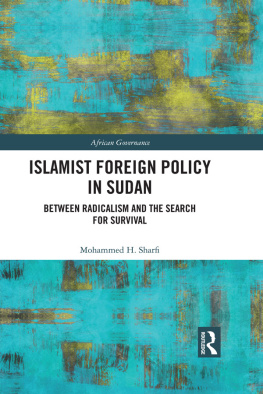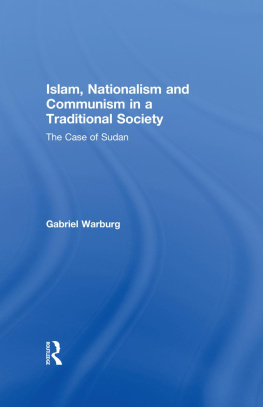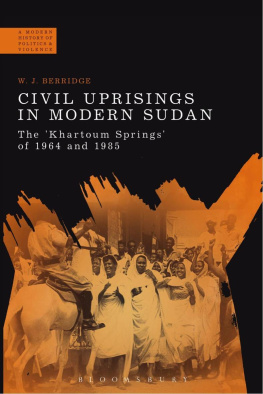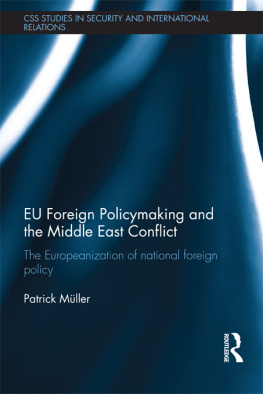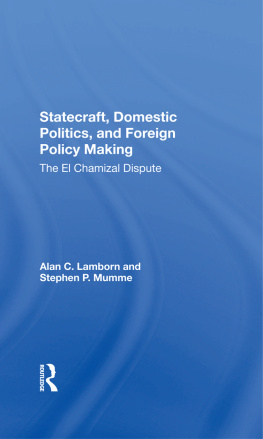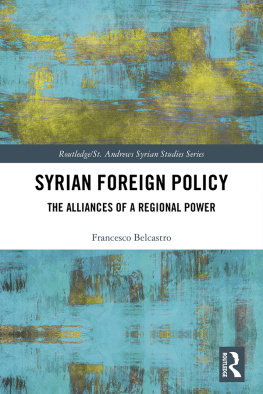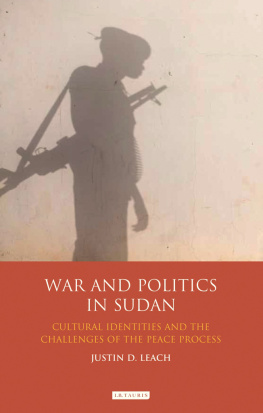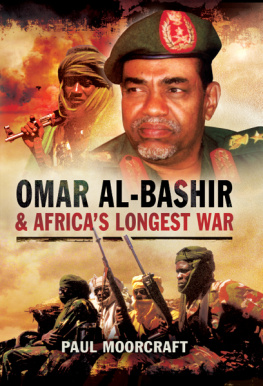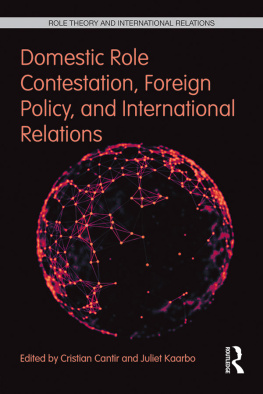Islamist Foreign Policy in Sudan
Examining the role played by ideology, internal politics and key figures within Sudan after the 1989 coup, this book analyses policymaking in the Sudanese administration in-depth and studies its effect on international and domestic politics and foreign policy.
The military coup undertaken in June 1989 by the Sudanese Islamist movement, known to them as the National Salvation Revolution, established Sudan as a central actor in the instability of the region. This book explores the foreign policy, international and domestic politics of the new government, from post-coup Sudan to the present day. The intriguing political issues in Sudanese foreign policy during the period pose many questions regarding the dynamics of the governments domestic and international policymaking. Studying the fragmentation of the Islamist movement into various political bodies, this book examines the role of foreign policy as a contentious point of Sudanese domestic politics. Islamist Foreign Policy in Sudan also looks at the major factors in the relations of Sudan, such as the civil war, terrorism and human rights issues.
Islamist Foreign Policy in Sudan will be of interest to students and scholars of international relations, African politics, human rights studies and Islamic studies.
Mohammed H. Sharfi is currently working as a Senior Consultant at the Diplomatic Institute in the State of Qatar. He previously worked for the United Nations in Sudan and Switzerland as an Information Analyst and Human Rights Officer.
African Governance
Mauritanias Colonels
Political Leadership, Civil-Military Relations and Democratization
Boubacar NDiaye
The Rwenzururu Movement in Uganda
Struggling for Recognition
Martin Doornbos
South Sudan
Post-Independence Dilemmas
Edited by Amir Idris
Institutional Legacies, Decision Frames and Political Violence in Rwanda and Burundi
Stacey M. Mitchell
Aid Relations and State Reforms in the Democratic Republic of the Congo
The Politics of Mutual Accommodation and Administrative Neglect
Stylianos Moshonas
African Presidential Republics
Jean Blondel
Cultural Capital and Prospects for Democracy in Botswana and Ethiopia
Asafa Jalata
Soldiers and the State in Zimbabwe
Godfrey Maringira
Islamist Foreign Policy in Sudan
Between Radicalism and the Search for Survival
Mohammed H. Sharfi
For more information about this series, please visit: www.routledge.com/African-Governance/book-series/AFRGOV
First published 2020
by Routledge
2 Park Square, Milton Park, Abingdon, Oxon OX14 4RN
and by Routledge
52 Vanderbilt Avenue, New York, NY 10017
Routledge is an imprint of the Taylor & Francis Group, an informa business
2020 Mohammed H. Sharfi
The right of Mohammed H. Sharfi to be identified as author of this work has been asserted by him in accordance with sections 77 and 78 of the Copyright, Designs and Patents Act 1988.
All rights reserved. No part of this book may be reprinted or reproduced or utilised in any form or by any electronic, mechanical, or other means, now known or hereafter invented, including photocopying and recording, or in any information storage or retrieval system, without permission in writing from the publishers.
Trademark notice: Product or corporate names may be trademarks or registered trademarks, and are used only for identification and explanation without intent to infringe.
British Library Cataloguing-in-Publication Data
A catalogue record for this book is available from the British Library
Library of Congress Cataloging-in-Publication Data
A catalog record for this book has been requested
ISBN: 978-1-138-49146-5 (hbk)
ISBN: 978-1-351-03286-5 (ebk)
Typeset in Times New Roman
by Apex CoVantage, LLC
To my parents, for their unmeasured depth of love.
And lower to them the wing of humility, and say: My Lord! Bestow on them your Mercy even as they cherished me in childhood.
(Al Quran 17:24)
Contents
PART 1
Radical agenda
PART 2
Foreign policymaking
PART 3
The future
Between the independence in 1956 and June 1989, the National Islamic Front (NIF) evolved from a small political group struggling to impact Sudanese politics to the vital success of controlling the state. Historical links between the NIF and Islamists in the Middle East and the wider Muslim world started with the initiation of the Sudanese Muslim Brotherhood in 1950s as a branch of the same faction in Egypt. Since independence through the three democratic systems (195659/196469/198589) and two military regimes (195964/196985), the Muslim Brothers adapted their political tactics according to the political environment, which enabled their ascendance to power. Internal conflicts erupted within the movement many times through the years over its objectives and direction. The central actors in this conflict were advocates of political engagement versus others who believed in concentrating on education and Islamic intellectual upbringing in society. Al-Turabis leadership dominated the movements direction from 1964 and guided the movement to tailor alternative strategies so as to adjust and engage during a cycle of parliamentary-military systems for achieving their ends of seizing political power.
The coup dtat of 30 June 1989 prompted by the NIF was a new turn in post-independence Sudans political landscape. The commitment of the military cadres and the sponsors of the new regime to impose their version of Islam was unquestionable. The revival of Islamic principles as perceived by the movement was the driving force behind the military takeover. It is imperative to discuss the national programme of the NIF in order to understand its behaviour in world affairs. The domestic agenda, in turn, reflects the policy orientation of the regimes foreign relations. Through the Islamisation programmes in Sudan, the movement attempted to present itself as a model for an Islamic state. In this manner, Sudan could inspire and lead the Islamic world to construct a similar model of its own.
The leaders of the 1989 military coup hailed their venture as a revolution against the politics of sectarianism internally and the position of Sudan in international politics. The NIF elite perceived the international system as dominated by Western Christian forces determined to control and contain the spread of Islam and prevent an Islamic revolution. Their ideological Islamic outlook to the international system sought a new active role for Sudan in the external sphere in line with their moral commitment to their counterpart Islamist political movements. Although the NSR was an extension of the complications in the Sudanese politics, the regime also had analogous qualities with revolutionary states.
The rise of the NIF
The Muslim Brotherhood movement originated through contacts with the Egyptian Ikhwan (brotherhood). In the 1940s, the new wave of Islamic thought in Egypt had a considerable influence on some Sudanese students and propelled them into political activism on their return home. Their vision of Islam as a driving force in the political and social spheres was unlike the outlook advocated by traditional Islamic Sufi sects ( Tariqqa ) that dominate the social structure of Sudan. Sufism is mainly a socially inward Islamic experience rather than the outward message of Islam advocated by the Ikhwan . The willingness to use a violent approach to implement Ikhwan political and social objectives became clear with the NIF ascendancy to power in 1989.

